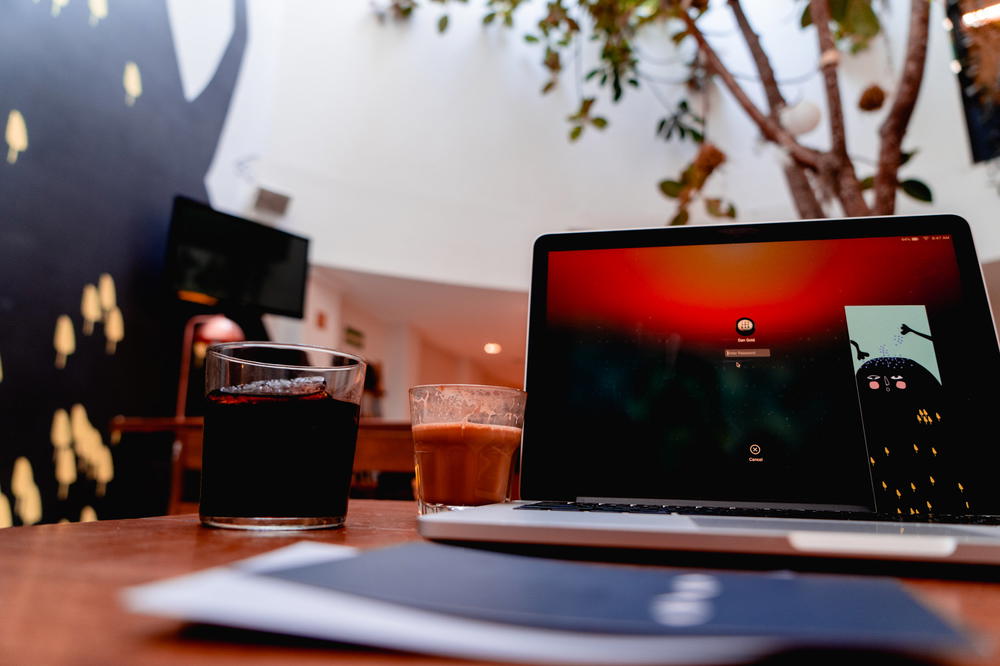How to Take Time off as a Freelancer
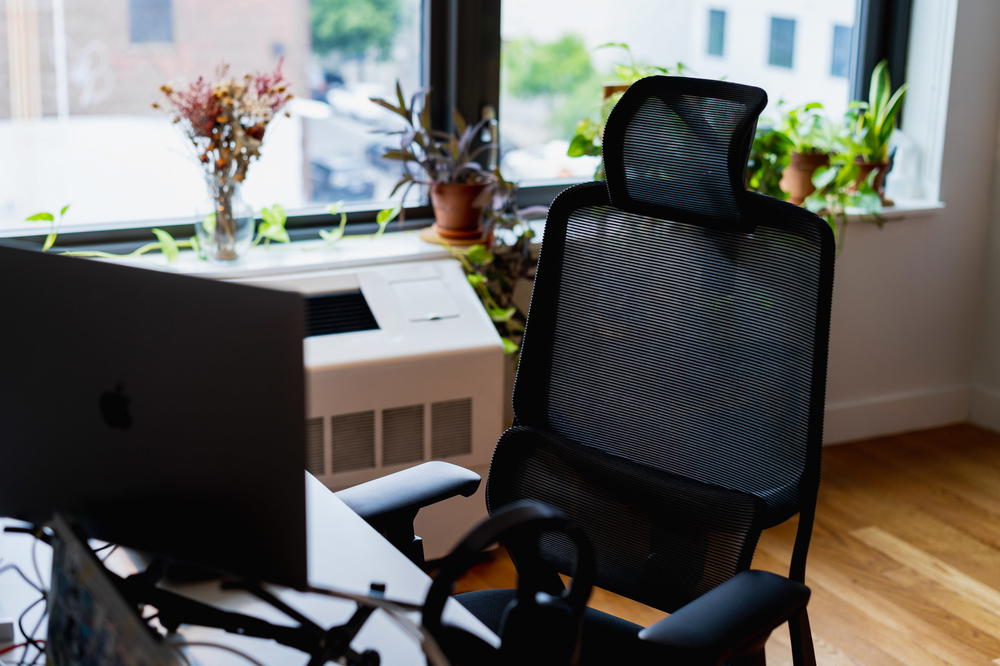
Can you take vacation time as a freelancer? Here’s the best way to take time off from your freelance business, in this guide to taking a break from work when you’re self-employed.
This article may contain affiliate links. We earn a small commission when you purchase via those links — at no extra cost to you. It's only us (Becca & Dan) working on this website, so we value your support! Read our privacy policy and learn more about us.
Table of contents
- Plan your freelance schedule as much into the future as you can
- Set a budget for your time
- Set a budget for your income and expenses
- Understand when your slow periods are
- Have a network of other freelancers to help you out
- Set proper client expectations
- Learn how to disconnect from your work accounts
- How to handle deadlines close to your vacation or time off
- Experiment with 4-day work weeks or adjusting your hours of operation
- Freelance as you travel!
One thing that all freelancers share is not having anyone manage their time for them. This comes with tons of benefits, but it also has its downfalls.
One of the benefits of working full-time is getting paid time off. This may be 10 days in addition to holidays or it can be unlimited vacation. While there is some nuance on what unlimited really is, it’s there for you!
Whether you’re starting out, or whether you have been freelancing for years, learning how to take time off is a skill. I want to share a few of my favorite tips and tricks that I’ve learned along the way during my experience freelancing.
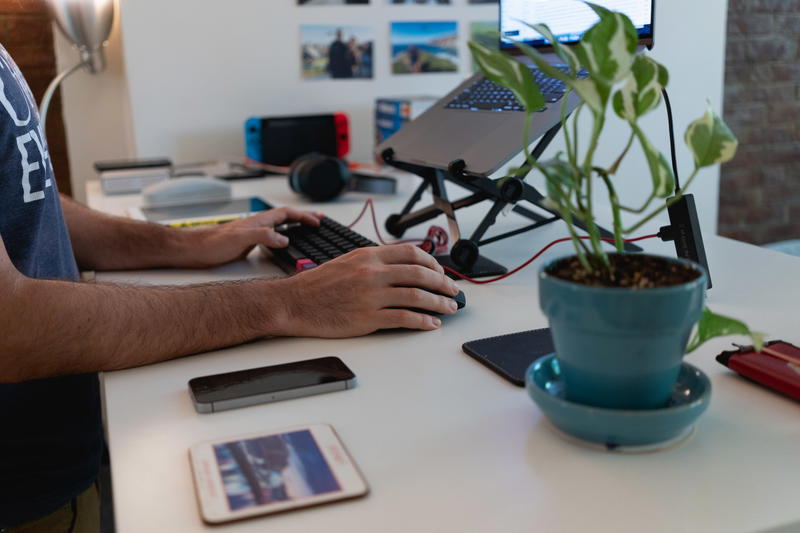
Plan your freelance schedule as much into the future as you can
Your schedule is one of the most important assets to you as a freelancer. Your schedule helps you plan when and if you can take on new clients, and what your deliverables are.
Being able to prevent burnout as a freelancer starts from having a good remote work schedule.
When you have a detailed schedule, you can find blocks of time in the future when you don’t have any work booked. Think of these gaps like you are booking yourself for a job, except the job is your vacation.
When I was in-house contracting for a contract client, I would actually take one to two weeks in between re-signing my contracts, for some time off. I would use this time to help catch up on some errands, business housekeeping and some relaxation. See the other things I’ve done when I’ve been in between freelance client projects.
Set a budget for your time
Try not to overbook yourself! When planning your schedule, make sure that you’re not exceeding your capacity.
To better understand your capacity, reflect on past freelance projects and figure out if your initial time estimates were correct.
Accurate time estimates will make your project planning more efficient and prevent any “crunch time” events in which you need to sprint to the finish line to complete a project.
Consider writing any last-minute revisions into your freelance client contact. This will give you some protection for your time as a small business owner, and help prevent some of those late nights spent working toward a deadline.
You can also set limits for yourself. Try experimenting with working for a certain amount of hours per day. Maybe your output is the same if you work five hours per day or eight hours per day. Aim to set limits that help your productivity as a self-employed professional.
Maybe saving client meetings for the beginning of the work week are best for you. Maybe they aren’t. Whichever the case, it’s worth a try.
All of this matters because holding true to your schedule and your time budgets will allow you to stay on track with your freelance projects.

Set a budget for your income and expenses
One of the biggest fears for freelancers of all skill levels is, ‘How will I get paid if I am on vacation?’
The short answer is, well, you won’t get paid. The long answer is, well, you are going to get paid.
Let me explain.
Your freelancer salary isn’t daily, weekly or monthly. It’s yearly.
When you work full-time and you negotiate your salary, you aren’t really thinking in how much will I get per week, you’re thinking in terms of a year, and then dividing by 12 to determine your projected income.
You can see more in how we discuss this in an article we like to call, the pros and cons of freelancing.
Freelance income isn’t any different. The only difference is that the payment amounts and time periods are different. Fundamentally, whatever you make in terms of income ends up being your yearly salary.
As a freelancer, a smart way to balance and budget your money is to keep as much as you can in a bank account, and then pay yourself a set amount of money that you need to pay your bills, rent, utilities and more.
This type of budgeting helps prevent living paycheck to paycheck, and will free up some stress when it comes time to take off for some vacation.
If you have a nice cushion toward the middle and end of the year (or really, at any point in time), you can feel okay about spending some extra money and not receiving any payments for the amount of time during which you aren’t working.
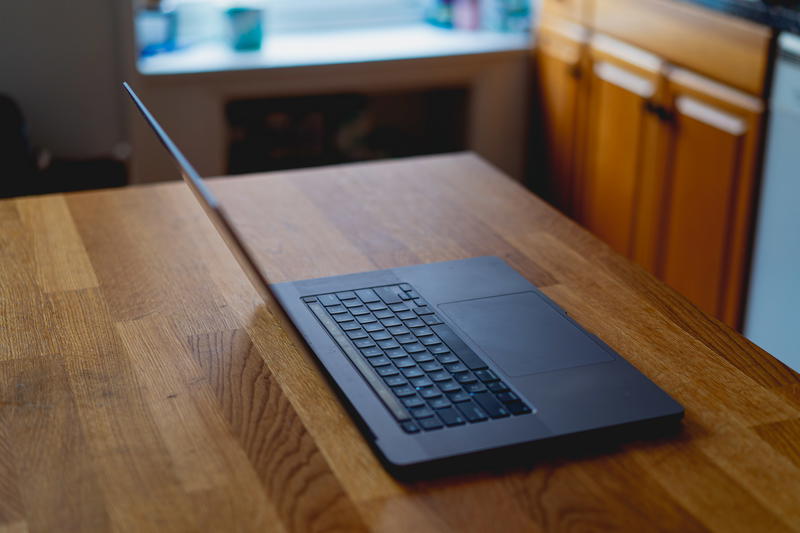
Understand when your slow periods are
I learned that my slowest times of the year are in January, February and March. The freelancing that I do is web development.
For whichever reason, most clients aren’t looking to update or shop for a new website right after the holidays. So, it’s during this period of downtime that I get to work on some of my own projects in between client jobs.
For e-commerce, the holidays are a busy time and after the rush, companies and people tend to “take it easy.”
For other industries that I service, the holidays (Christmas to New Year’s) are generally a slow time because a lot of people take time off and spend it with their families.
Other industries may have other slow periods based on industry trends or other factors.
Try and understand when your slow periods are, because it’s best to leverage when you’re not busy to take some time off for yourself.
This can help you to avoid missing out on any leads or needing to take new client inquiry calls while you are trying to enjoy your time off.
Have a network of other freelancers to help you out
In the event that you have some work that you aren’t able to finish, or receive some requests while you are on vacation, leverage and expand your network!
Networking with other freelancers is mutually beneficial. A solid network of freelancers enables you to get new client leads and share leads if the project isn’t a good fit. I’ve also found that knowing other freelancers has helped me to find my next freelance client after a job ends.
As an added benefit, you can also leverage your network to help out if you need some help wrapping up a specific client request.
You can subcontract the work, or refer your connection directly with the client.
Be careful when referring someone else to a client. You want to make sure that the client continues to want to work with you, primarily.
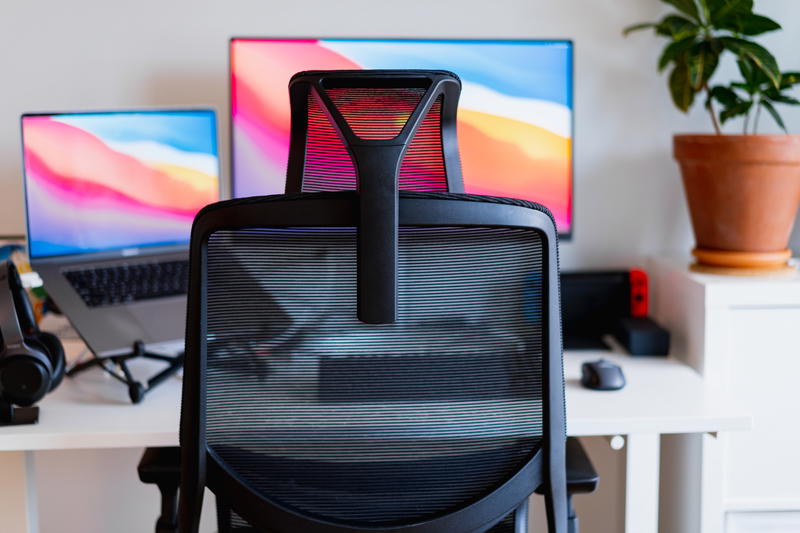
Set proper client expectations
Be transparent and over-communicate your time off to your client. Give them as much of a heads-up as possible, so that they can align their expectations.
In the corporate full-time world, people take off all the time. Keep that in mind.
Don’t feel like you have to work 24/7 for a client because they are paying you. They pay you for a service, and if it’s delivered, they should be happy.
If a client is telling you that there is no way you can take time off to rest and recharge, head over to our guide for how to end things with a client.
Here are some general tips to help set client expectations that you are taking time off:
- Set an email auto-responder.
- Incorporate your vacation time into your contract or scope of work (SOW).
- Send a reminder to all of the clients with whom you’re actively working that you will be unavailable within a certain date range.
- Leave yourself an outlet for emergency requests. Let clients know that they can contact you or someone else in the event of an emergency.
Learn how to disconnect from your work accounts
Try really hard to not check your work email and messages while you are taking some time off.
The time off that you are taking is specifically to get away from work. It’s missing the point if you are working while you are trying to relax! Everyone needs time to hit that ‘refresh button,’ including freelancers, in order to avoid burnout.
You can temporarily remove some apps from your phone, set screen time limits or choose not to take your laptop with you on your trip.
I am actually really bad at this, so I will start taking my own advice next time that I want to take a vacation!
How to handle deadlines close to your vacation or time off
Okay, so you’ve booked a trip somewhere and it’s the second to last day before you’re about to leave.
Your client comes to you with a list of changes and you won’t be able to get everything done by the time you have to leave.
What do you do?
If you’ve taken most of the steps above, this shouldn’t be a problem. You should be able to communicate back to your client that you can address these things when you return.
In all of my experience, clients have been reasonable in understanding that the work can wait. Most of the time, if they ask for something and they know I won’t be available, it doesn’t mean that they want that service or question answered right away.

Experiment with 4-day work weeks or adjusting your hours of operation
For times when you are really busy, you can still plan some time off, but you can think a bit more creatively in finding the time.
You can experiment with only working four days during the week. This is fairly common and it is starting to be adopted in some bigger companies.
You can use the free day however you want! You can run a few errands that you didn’t get a chance to run. You can go to the beach for the day. You can sleep in. The day is yours.
The logistics for this aren’t very complicated. To make this work, don’t schedule meetings or calls on whichever day you want as your free day.
That’s it.
You don’t have any external responsibilities on the day that you picked. Now it’s up to you to work efficiently and effectively for the rest of the days in order to get all your work completed.
In addition to experimenting with your actual working days, you can think about adjusting your hours of operation.
If you find yourself more efficient at night, well, work at night. While it’s not time off in an extended amount of time, you can still find yourself more free time throughout the week doing something like this.
Part of the joy of being a freelancer is finding creative solutions!
Freelance as you travel!
As a bonus idea, you can try and freelance from anywhere while working remotely. Working and traveling from a bunch of remote work-friendly cities around the world is how I got my start to freelancing.
I have a lot of experience working across multiple time zones, juggling time off to explore new cities and adjusting my work day schedule to enjoy travel.
When you work remotely while you travel, I found that long weekends are one of the best perks. I enjoyed having a Friday or Monday off to extend a quick weekend trip somewhere or explore a new part of town and avoid the rush of other tourists.
If you’re already working from an interesting location, you can also cut down on the amount of travel time to get there, because you’re already there!

💼 Growing your freelance career?
These freelancing playbooks come straight from our wins and misses. If our advice unlocked a new client or idea, a coffee helps us share more real stories.
Support our freelance resourcesYou may also like
-
![Woman working remotely with laptop at a trendy beach cafe]()
How to Work with Clients in Different Time Zones (14 Tips)
Need the best tips for working with clients in different time zones all over the world? See how to overcome challenges of communicating across time zones, and working with dispersed teams while working remotely or freelancing.
-
![A laptop computer on a table with a cup of coffee.]()
14 Pros and Cons of Freelancing Vs. Working Full-Time
What are the pros and cons of freelancing? Are there advantages and disadvantages of freelancing? See the benefits of freelancing, and differences between being freelance vs. an employee.
-
![a chair and a table in a room]()
How to Explain Freelance Employment Gaps in an Interview
How do you explain an employment gap as a freelancer? To justify a freelance employment gap in an interview, use these examples and tips to explain any gap between full-time jobs.
-
![Woman working on a couch with a laptop]()
Do I Need a Website for My Freelance Business?
A website is your digital business card. It tells the world who you are and what you do.
-
![a person sitting on a couch using a laptop]()
21 Ways How to Find Your Next Freelance Client
Want to know how to find new freelance clients, or how to find your next freelance client? Here are the best creative tips and tricks for ways to land new clients.
-
![A room with a table, chairs, and a tree.]()
How to Transition from Freelancing to Full-Time Job (10 Tips)
Going back to the 9-to-5 after freelancing full-time is hard, which is why we’re sharing tips for going from freelance back to full-time, and returning to full-time work after ending a freelancing career.

